Pages
- A KUNG
- Anthony
- Blog
- Cart
- Charlotte
- Checkout
- Chloé
- Chris
- Contact
- Danny
- David
- Guitar Instructors
- Home
- Home
- Hovig
- Instructors
- Isaac
- Jennifer
- Jon
- Mira
- Music Lessons
- My Account
- Paul
- Percussion Instructors
- Photo Gallery
- Piano Instructors
- Pricing
- Pricing New
- Samantha
- Sample Page
- Sarah
- Shop
- Sitemap
- test
- Testimonials
- Tsuzumi
- Violin Instructors
- Voice Instructors
- Who We Are
Categories
Archives
Meta
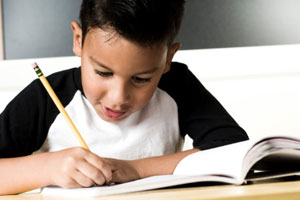
Have you ever listened to a song that reminded you of a past event in your life?
For example, listening to “Good Riddance (Time of Your Life)” by Green Day reminds me of my high school graduation. This is called a ‘reminiscence bump’. There are many new psychological studies that show a correlation between music and memory. Knowing this information can give us insight on ways we can improve methods of learning. Here are two recent findings that support the correlation between music and memory.
- Reminiscence Bumps
According to Krumhansl & Zupnik (2013), “Music transmitted from generation to generation shapes autobiographical memories, preferences, and emotional responses…”. This type of memory is called a ‘reminiscence bump’. You can recall memories of specific events that happened at/around the time you heard a certain song, or remember what emotion you were feeling. For example, listening to Adele’s break-up anthem “Someone Like You” may bring up some deep emotions for some people. One generation can recall memories from hearing “Oops! I did it again” by Britney Spears, while another generation can recall different memories from hearing the melody of Queen’s “Bohemian Rhapsody”.
- Singing a New Language
According to Ludke et al. (2013), music can help memorization. Researchers observed that people who were trying to learn Hungarian learned the language quicker if they sang phrases instead of repeatedly saying them. The researchers believe that the melody of the music is a cue that aids in ingraining the phrases into the people’s memory.
Having insights like these can help us improve learning methods. Studying for your next spelling test? Try making a song out of it! I learned how to spell ‘because’ when my first grade teacher made a song out of the letters. ♪ “B-E-C-A-U-S-E…buh nuh nuh nuh nuh nuh!”♪ To this day, 15 years later, I still remember that song- melody and all! Perhaps you need to memorize information for your next science class. You can try memorizing the names of the planets by singing them along to the melody of “Twinkle Twinkle Little Star”. There are many ways you can use music as a memory tool to make learning easier. Utilize the advantages of music!
Samantha – Instructor of the Month
13/05/15

We had such a blast interviewing this month’s “Instructor of the Month”, Samantha Aurelio. Specializing in singing and songwriting, Samantha is an outstanding instructor and performer. While seeing multiple students each week, she has managed to make time to work on Stepping Stones, her second EP album that was released April 4.
Samantha has loved music her whole life, but she first noticed her knack for singing when she signed up for her middle school talent show. She auditioned for a singing performance and brought her teacher to tears. Why voice of all instruments? She simply enjoyed singing to tracks in the car. She would harmonize with her sister on road trips and just sang along with the music that played around the house.
In high school, she participated in musicals usually with a role in the ensemble, which was the harmony and backbone of each song. She actually landed a lead role as Snoopy right before going off to college! She would absolutely love to participate in more musicals if she “wasn’t terrified of acting.”
Growing up, Samantha loved watching her favorite artists perform. It always fascinated her because she admired that they did what they loved for a living. She was inspired at a young age and decided to pursue singing as a career. For Samantha, singing has always been an outlet, and she never had a ‘plan B’. She loved the idea of performing, but really got to consider teaching after taking a vocal pedagogy course in her junior year of college. “I feel like I have enough knowledge in theory that I could be a tool to students who don’t know how to break through the walls that have been holding them back.”
Samantha is a passionate songwriter. She composes her own music and writes her own lyrics and melody. She grew up listening to classic rock and country music, and later studied jazz. Her style is “indie-pop blues with a little bit of rock and roll”. One of her favorite bands she grew up listening to is Queen. Her biggest influences are Sara Bareilles and the Wilson Sisters.
“A musician should listen to all types of music and should be well-versed in music itself. You can’t lock yourself in one genre,” according to Samantha, “I believe that understanding theory…reading music…improving your ear…is very important.” Like most other musicians, Samantha makes mistakes during performances. Her advice for students who also perform is to, “Just go with the flow and don’t get caught up with the audience.” She added, ”I get very anxious before shows and it’s something I work on daily, but making mistakes is the beauty of live performances. It makes every show special.“
To end our interview, we decided to have a little fun with flash questions! The following are Samantha’s favorites:
1. RMA: What are you favorite hobbies? Hobby (un-related to music):
Samantha: “Cooking, fitness and watching Friends on Netflix.”
2. RMA: What is your favorite food?
Samantha: “Oooh…sushi!”
3. RMA: Where would you like to getaway to?
Samantha: “My favorite place to travel to…a getaway for me…northern California. My best friend lives up there. New Jersey is also a great getaway because I love going home.”
4. RMA: What is your favorite song?
Samantha: “That’s hard…Mountain Time by Joe Bonamassa!”
5. RMA: What is your favorite type of performance to watch?
Samantha: “A live show with an intimate venue or setting…like small theater or Hotel Cafe where you’re almost one-on-one with the artist.”
6. RMA: What is your favorite genre of music?
Samantha: “If i could outlaw the word genre! It just seems so barebone.”
5 Valuable Life Skills from Music
13/04/15
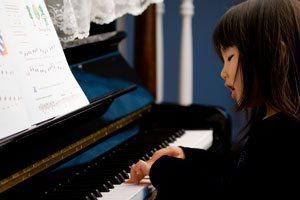
Studies have shown that music education can be very beneficial for child development, especially because music is universal and very fun to learn! So why not take advantage of this amazing tool? Children who pick up an instrument develop skills that will help them far beyond reading sheet music.
Here are five valuable life-skills that your child can develop from music education.
- Confidence. Children learn to take on challenges with courage. When learning piano, accepting the challenge of learning a new, difficult piece is commendable. One knows that they will have to put in a lot of effort and time to master a song. Performing in front of a teacher, family, friends or even strangers can be nerve-racking. It takes a lot of self confidence for a child to overcome the stress or anxiety that may surface with an upcoming recital.
- Patience. Children learn to adapt their expectations when having to learn a challenging piece. When having difficulty, instead of giving up right away, they realize they need to take small steps that may take them longer to accomplish their big goal of mastering the song. They learn that practice makes perfect.
- Ingenuity. Children develop creativity skills that can help them in all aspects of life. Being creative will help them to be more resourceful when facing a problem. Their overall dexterity will also improve. They won’t complain about being bored because they can always think of new ideas to have fun, like composing a new song!
- Determination. Children learn to stay focused to achieve the goals they set. Learning music takes a lot of good habits and self-discipline. It takes a lot of hard work to attain set goals. Setting big goals, like learning a new Mozart piece, motivates people to accomplish them.
- Critical Thinking. Children learn to follow notes, count beats, and play their instrument all at once. Looking at each note, measure, and phrase alone takes a lot of critical thinking to then have to play in such a way that will give life and soul to a song. Learning how to read music helps children excel in subjects like English because of the reading comprehension skills needed.
Four Powerful Tools of Music
05/04/15

We hope you’ve had a great start to the new year! Have you been keeping up with your new year’s resolutions? One of our resolutions is to strive even further to provide you with the best music education out there. Not only can you learn through our talented instructors, but also through our blog!
As we’ve mentioned before, music is a powerful tool that can be utilized for people of all ages, whether it’s used for child development or even music therapy for adults. Because it is a new year, we would like to reflect on a few amazing scientific discoveries made in 2014 about people who listen to music.
- Music Improves Running Performance.
“I’m going to exercise more this year.” Are you one of those people whose list of resolutions include going to the gym more often?? Guilty! *blushes* We hope you’ve been keeping up with your cardio because according to the Journal of Strength & Conditioning Research, listening to fast or slow motivational music while running stimulates the prefrontal cortex, which gives runners more positive emotions that contribute to an improved performance and faster recovery time post-run.
- Correlation Between Rhythmic Ability and Language Learning.
According to developmental psychologists from Northwestern University, a great way to recognize disabilities in language early on is with a test in rhythmic ability. By distinguishing disabilities while a child is still developing, one can address the impairment while the child’s brain is still adaptable or impressionable.
- Musical Training and Grey Matter Linked with ADHD.
According to a longitudinal study done by scientists from the University of Graz, children who learn music had notably thicker grey matter in their frontal lobes, which is the part of the brain that is associated with sustained attention and concentration. Musical training builds the structures that are significantly deficient in neural scans of children suffering from ADHD.
- Music Cures Tinnitus.
Tinnitus is a ringing or buzzing in the ear that can be caused from many things, such as listening to music too loudly or injuries with one’s jaw, head, neck, etc. for people of any age. Chronic tinnitus is when one hears a long tone while there are actually no musical stimuli and is typically associated with old age and hearing loss. According to studies done by the University of Munster, listening to soft, carefully measured music can cure tinnitus! Researchers have found that with focused listening of music, they can reorganize auditory cortices of the brain to get rid of the “ghost tones” that are apparent with tinnitus.
There are unlimited benefits we get from a music education. We are excited to see what new scientific discoveries about music will be made this year! Happy 2015! Wishing you a year filled with happiness, good health and beautiful music!
Anthony – Instructor of the Month
03/04/15
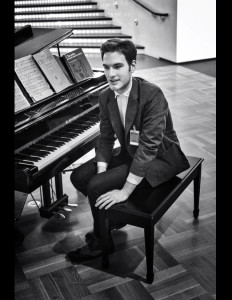 Our students get the joy of seeing their talented music instructors weekly and lessons are focused on their progress and what we can do to help them improve as musicians. RMA has amazingly gifted students, and we strive to let each and every one of them shine. We sometimes forget that behind our shining stars are incredible instructors who do a wonderful job in teaching, inspiring, and guiding our students. Here at RMA, we are extremely proud of our instructors and would like to feature an “Instructor of the Month”.
Our students get the joy of seeing their talented music instructors weekly and lessons are focused on their progress and what we can do to help them improve as musicians. RMA has amazingly gifted students, and we strive to let each and every one of them shine. We sometimes forget that behind our shining stars are incredible instructors who do a wonderful job in teaching, inspiring, and guiding our students. Here at RMA, we are extremely proud of our instructors and would like to feature an “Instructor of the Month”.
This month we would like to feature Anthony who is one of our talented piano instructors. Not only is Anthony a dedicated RMA instructor, he performs at local venues with his instrumental trio, Artifacto, and is also an accompanist with the prestigious American Musical and Dance Academy in Hollywood, where he is currently the associate music director for AMDA’s spring production of Annie Get Your Gun. Anthony recently participated as an accompanist for LA Opera’s winter production of The Marriage of Figueroa, presenting workshops in over 15 elementary schools in and around Los Angeles to rehearse, stage, and perform the original LA-themed opera. Anthony is an inspiration to many of our students, but we were intrigued as to what inspires him.
Anthony was brought up in a musical family in Nashville, Tennessee. His grandmother played the organ and piano, and he remembers listening to all the hymns she used to play for him. His uncle played the trombone, exposing him to the music scene and opened him up to genres like jazz, funk, fusion, and rock. His family had always encouraged him to learn and practice music growing up, therefore, it was easy for him to find inspiration and support for his passion.
Anthony didn’t always have his heart set on music. He had a lot of interest in physics, math, and science fiction growing up. At one point in his childhood, he remembers aspiring to be a surgeon. However, he realized that music was his greatest passion when he landed an assistant position in the music industry, in which he helped a composer/arranger by preparing scores. He would tag along with his mentor to the studio where he enjoyed watching other passionate musicians work towards their aspirations. This is when he decided that he would devote everything to pursuing a career in music.
Anthony’s teaching career has been a rewarding experience here at RMA, “It’s very rare to have students who put in the work. It’s so great working with parents who are so involved in getting their kids to work hard.”
If you were to go to one of Anthony’s performances, expect to be dazzled by his “modern-contemporary instrumental fusion music”. He is an eclectic collector of styles. Performing is always fun, but Anthony also enjoys listening to works of other talented artists. His favorite genre right now is avant-garde hip hop. “It’s cool because it includes jazz. I really like Flying Lotus because of his collaborations with artists like Herbie Hancock, Kendrick Lamar… even Snoop Dogg. He’s also local—in North Hollywood!”
Although Anthony has accomplished a lot and has years of experience in performing, he still becomes nervous no matter which event, who he’s playing for, and how many people are in the audience! He can clearly recall the feeling he had before auditioning for college, “I would shake before I had to perform. I would stretch my hands and do push ups to get the blood flowing in the right way.”
His advice for his students is to “look at nervousness straight in the eye. What’s getting in your way? Consciously try to work through them. If you ignore your nervousness, it will destroy your performance. Face it head on!” At the end of his interview, we had a short series of fill-in-the-blanks we thought would serve as words of encouragement for our students.
Music is a language. It’s intangible unlike words.
My music makes me feel dignified.
I write songs because I want to participate in the dialogue. I want my voice to be heard in a participatory way.
I Support music because for kids, it’s the most invaluable thing they could get into. Support music because music never dies, and music will never die.
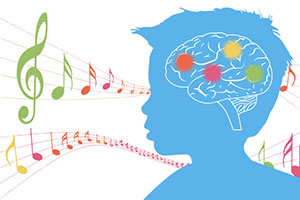
According to a recent report by NPR, music doesn’t just feed the soul: it also enhances the physical body, especially the brain. A recent study published in The Journal of Neuroscience discovered that kids who took music lessons for two years were better able to process language. This lead to an overall improved trajectory in school for the kids who participated in the study. But processing language isn’t the only benefit of musical training for the brain. Multiple studies have suggested that musical training in childhood results in higher IQs, spatial-temporal skills, improved test scores and the ability to speak more than one language.
According to the NYDailyNews, researches at the Boston Children’s Hospital found that early musical training enhances “executive functioning” in the brain. Executive functioning includes a host of brain activities critical to a child’s academic and social success, including problem solving, planning and other cognitive processes.
Children learning music are expanding their minds and gaining numerous skills that will help them in the future. Making music involves more than just the voice or fingers; by playing an instrument children tap into multiple skill sets, often simultaneously, such as using ears and eyes, as well as large and small muscles. Science Daily reports that according to a study by Concordia University and the Montreal Neurological Institute, children who start lessons earlier have a stronger connection between their motor skills and their brain activities – in other words, a more established relationship between the brain’s plan and our ability to carry out actions.
The best age to start music lessons? According to the Concordia study, between 6 and 8. Researches dubbed this period a “sensitive period” where music classes interact with brain development to result in long-lasting changes in motor abilities and brain structure.
Let The Royal Music Academy share the many benefits of musical training with your child. Sign up for your first lesson today.
Best Music School in Los Angeles
12/01/15
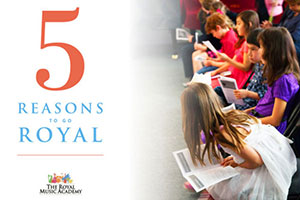
Five Reasons to Go Royal
Looking for the best music school in Los Angeles? Look no further. The Royal Music Academy is here to give your child the royal treatment.
1. A Unique Approach
The Royal Music Academy transforms the experience of learning an instrument into a life-long passion for the arts. Specializing in at-home instruction, we have constructed a solid foundation that encompasses technique, ear training, composition, improvisation and versatile music genres. We focus on developing technical skills while encouraging students to explore their creativity.
2. An Encouraging Founder
Diba Mostadim, a second-generation piano teacher with 10+ years of experience, founded the Royal Music Academy to share her passion for music with the world. Using her strong musical pedigree and hands-on management approach, Diba trains each instructor at the Royal Music Academy to deliver an unprecedented service to its loyal client base. Diba ensures that each student’s talent and musical curiosity is nurtured.
3. High Caliber Instructors
The Royal Music Academy recruits and trains the highest caliber piano, voice, guitar, drum and violin teachers. The majority of our instructors have completed a Masters or PhD in music and some have even been nominated Grammy! Not only are our instructors experts in their fields, they apply a compassionate approach to keep students engaged in the learning process.
4. Tech Savvy + Convenient
Signing up for a music lesson has never been easier. Everything you need to register is conveniently located on The Royal Music Academy website. Under the schedule section you have complete access to purchasing packages and scheduling your next class.
5. More than Music Lessons
In addition to providing stellar music lessons, The Royal Music Academy can schedule our highly talented instructors to provide entertainment for your child’s birthday party, or musicians for a public or private event. From string quartets to full jazz bands, our talented instructors will steal the show!
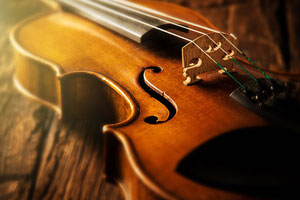
You don’t need any fancy equipment to get started in learning the violin. No matter what you start out with, it will take years to develop the skills to become a world class violin player. The basic tools you will need are a bow, rosin, shoulder rest, and case.
The bow usually comes with the violin, but if you buy separate, they can be just as pricy as the violins. The rosin helps the bow grip the string. It is cheap, and can last long with the right maintenance. A shoulder rest is a personal choice, and it can take a while before you find one that works for you. If you want something that hold your violin up without lifting your shoulder or clenching your neck, a shoulder rest is recommended.
For the case, that may come with the violin, but if not, they are not expensive and can come with additional storage pockets. There are additional optional equipment such as mutes, cloth, and metronomes. They are useful for maintenance and assisting in lessons.